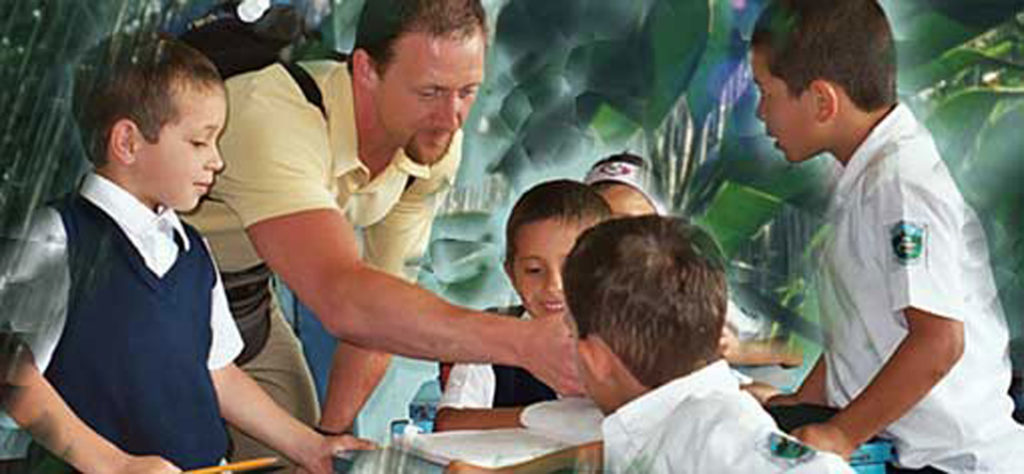This summer 14 teachers and principals and five agricultural extension agents traveled through Costa Rica for a two-week cross-cultural seminar sponsored by UGA’s Center for Latino Achievement and Success in Education (CLASE), the Cooperative Extension Service and the Office of the Vice President for Public Service and Outreach. The purpose of the seminar, “Culture and Content in Costa Rica,” was to help educators, teachers and extension agents better understand and work more effectively with Georgia’s growing Latino population. Already, Latino children account for more than 50 percent of K-12 students in some schools in Fulton and Gwinnett County, where many of the seminar participants work.
The seminar was a study of Costa Rican culture, education and rural economy, led by Glenn Ames, director of the Office of International Public Service and Outreach, and CLASE director Mike Padilla. Participants visited farms, schools and local industries.
During an evaluation of economic issues, the group learned that Costa Rica has set aside 25 percent of its land in reserves, and that ecotourism is a thriving industry. Many areas are protected and managed, while other areas are open for tourists to enjoy the country’s cloud forests, volcanoes, rivers and wildlife.
Participants observed the practices of the farm families at Finca La Bella, who hosted the group for their weekend home stays. The families were limited-resource farmers who cultivated small plots of coffee, beans, bananas, and vegetables on steep hillsides primarily for home consumption. Milking by hand began at 5:00 a.m. and surplus milk was sold at the Monteverde Cheese Factory. The family farmers were contrasted to Tico Fruit, a large agribusiness complex, which produces fresh pineapple and orange juice at its huge plant near Muelle on the Atlantic coastal plain. Tico juices and concentrates are sold in Tampa, Florida.
Participants said they plan to utilize their experiences in teaching and programming activities in their classrooms as well as speaking engagements at public schools and civic organizations, diversity training, and 4-H programs.
